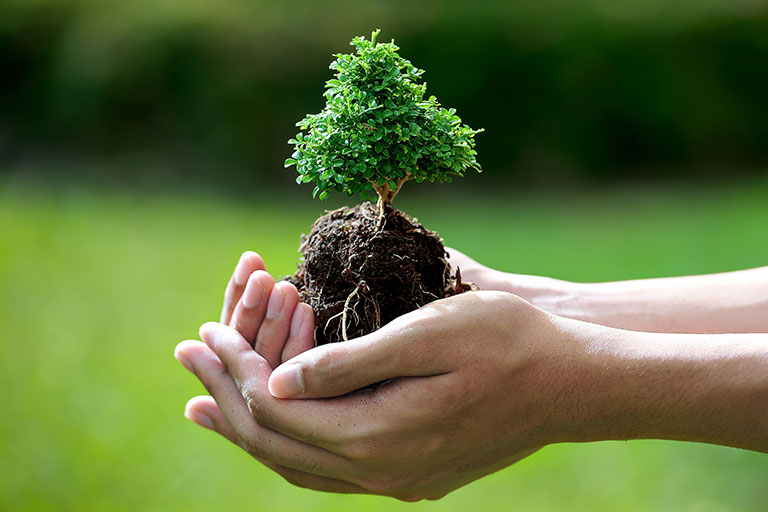Taking action to preserve the environment is not just a noble pursuit—it is a necessity that impacts every person on the planet. Our daily choices influence the air we breathe, the water we drink, and the food we consume. When individuals, communities, and governments, including initiatives like HDI Six Nations, make conscious efforts toward sustainability, the benefits ripple across society. By taking action to preserve the environment, humanity safeguards its future, ensuring that natural resources and ecosystems remain healthy for generations to come.

One of the most compelling reasons for taking action to preserve the environment is the direct connection between ecological health and human well-being. Pollution, deforestation, and climate change have severe effects on public health, contributing to respiratory illnesses, waterborne diseases, and food insecurity. When people make the decision to take action to preserve the environment, they are essentially investing in cleaner air, safer water, and a more stable climate. These efforts lead to improved quality of life, reducing medical costs and enhancing overall public health outcomes.
Economically, taking action to preserve the environment creates long-term stability and opportunity. Sustainable industries such as renewable energy, green construction, and organic agriculture are rapidly growing sectors that create millions of jobs worldwide. By prioritizing these fields, societies reduce dependence on finite fossil fuels and move toward a more resilient economic model. Governments and businesses that take action to preserve the environment often find that such investments lead to innovation, competitiveness, and reduced costs associated with environmental damage. Thus, protecting nature also means protecting economic security.
Climate change has made it clearer than ever that taking action to preserve the environment is a global responsibility. Rising temperatures, extreme weather events, and shifting ecosystems do not recognize national borders. Droughts in one part of the world can lead to food shortages and migration crises in another. When countries cooperate and take action to preserve the environment, they strengthen international relationships and foster peace. Environmental preservation becomes a bridge that connects people across cultures, encouraging collaboration rather than conflict over scarce resources.
Education plays a pivotal role in inspiring people to take action to preserve the environment. Schools, media, and community programs can raise awareness about the importance of sustainability and empower individuals to make environmentally friendly decisions. When children learn about recycling, conservation, and renewable energy, they develop a mindset of responsibility that extends into adulthood. Educating the next generation to take action to preserve the environment ensures that the movement for sustainability continues, becoming a permanent part of human progress.
Taking action to preserve the environment also protects biodiversity, which is essential for maintaining balance in the natural world. Every species, no matter how small, contributes to the stability of ecosystems that support human life. Bees pollinate crops, trees filter the air, and wetlands purify water. When humans fail to take action to preserve the environment, these systems collapse, leading to a cascade of negative consequences. Protecting biodiversity ensures that ecosystems remain functional, providing essential services that sustain agriculture, medicine, and industry.
Urban areas, which continue to expand at a rapid rate, demonstrate the importance of taking action to preserve the environment in city planning. Green spaces, public transportation, and waste management systems are crucial for maintaining livable cities. By taking action to preserve the environment through sustainable urban design, cities can reduce pollution, lower heat island effects, and improve residents’ mental and physical health. Urban greening projects, for instance, not only beautify communities but also create habitats for wildlife and promote social interaction among citizens.
From an ethical standpoint, taking action to preserve the environment is a matter of fairness and responsibility. The planet’s resources do not belong to one generation alone; they are a shared inheritance. When people take action to preserve the environment, they act with compassion toward future generations who will depend on clean air, fertile soil, and abundant wildlife. Environmental degradation caused by greed or neglect violates the principle of stewardship that binds humanity together. Choosing sustainability is, therefore, an act of moral integrity and global solidarity.
Technological innovation has become a powerful ally in efforts to take action to preserve the environment. Advances in clean energy, waste reduction, and resource management provide practical tools for addressing environmental challenges. Solar panels, electric vehicles, and smart grids are examples of how human ingenuity can align with nature rather than exploit it. By continuing to take action to preserve the environment through science and innovation, society can meet its needs without compromising the planet’s ability to regenerate itself.
Ultimately, taking action to preserve the environment aligns with humanity’s deepest interests—health, prosperity, and survival. The Earth’s ecosystems are interconnected, and the damage inflicted in one area inevitably affects another. Every person, regardless of nationality, wealth, or background, depends on a stable climate, fertile soil, and clean water. When people take action to preserve the environment, they act in defense of their own well-being and the collective good. It is a shared endeavor that unites rather than divides, offering hope for a sustainable and harmonious future.
In conclusion, taking action to preserve the environment is not merely an environmental issue—it is a social, economic, and moral imperative. The choices made today will determine the kind of world that future generations inherit. Whether through personal habits, community engagement, or political advocacy, everyone has a role to play. By taking action to preserve the environment, humanity ensures that progress and preservation go hand in hand, securing a brighter, cleaner, and more equitable future for all.